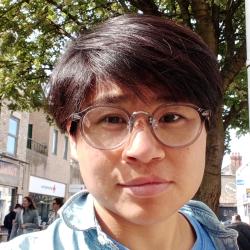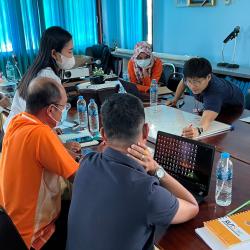Angkana Huang, Postdoctoral Research Fellow in the Salje Group
What is your current role?
Postdoctoral research fellow.
When did you start with the Department?
October, 2021. As a project-specific postdoc.
What are you currently working on?
Many things. My main project is now understanding molecular mechanisms that underlie how our immune responses are variably successful in neutralizing naturally circulating dengue viruses. But I also have side projects on developing technologies that are feasible for communities to combat their on public health priorities. And have been increasingly involved in efforts to improve infectious disease modeling capacities in the Global South to make science more equitable.
How did you get started in science?
I think science is all around us, so maybe since we were born? But I was only able to call myself a ‘scientist’ after a few years into my PhD. It was when I was confident enough about my critical thinking skills and my rigor to test out hypotheses. Considering that as the start, I got into science (my PhD) through spending years working at a medical research institute in Bangkok, Thailand as a data manager, and later data analyst and bioinformatics technologist.
What has been a defining moment in your career?
Probably the day my then to-be PhD advisor walked into my office asking me if I wanted to “go to school”. Not only did it technically set the start of my PhD admission process, but as years of being a fan-girl of his research, it really boosted my confidence that I have some talent that’s worth fetching. Everything after that accelerated my career growth so much that every day is now quite breathtaking.
What advice would you give to other women wanting a career in science?
Being a woman has zero association with what you are capable of achieving. The barriers come from being ‘perceived as’ less capable, or impeded in many ways. While those frictions are real, we are at a much more promising time than ever. If we believe in the process and persevere, we can, in this very generation, shift the perception. Of course, there will be lots of tough days so please do reach out and make use of peer support. They are more abundant than we think.
What are your future goals, for yourself or for women in science?
I think leaving the field, and the world, better than when we entered is key. I hope to see women unbounded by our sex and gender. And everyone can be part of this. Every little action/empathy helps.


